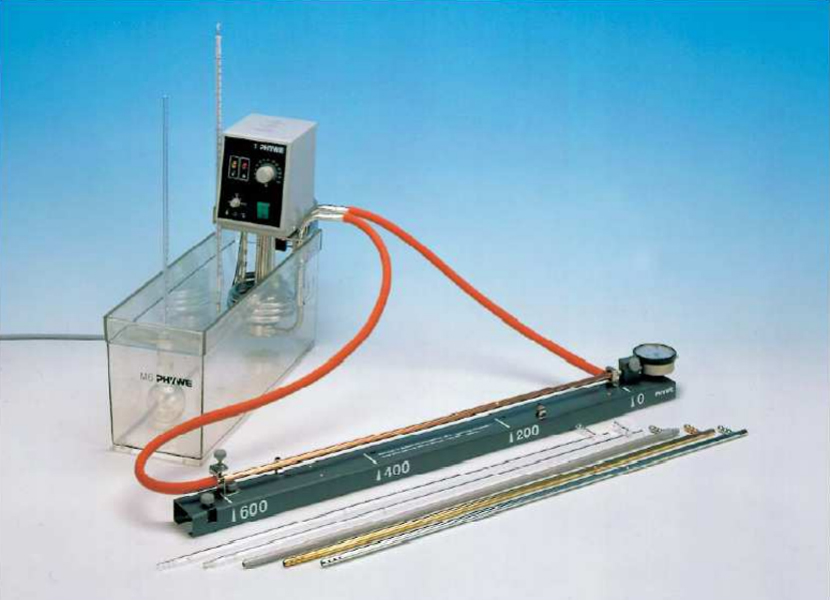Thermal expansion in solids and liquids

Principle
The volume expansion of liquids and the linear expansion of various materials is determined as a function of temperature.
Benefits
- With detailed experiment guide
- Two experiments in one
Bath for thermostat, makrolon
External circulation set for thermostat Alpha A
Immersion thermostat Alpha A, 230 V
Ethyl acetate 250
Glycerol, 250 ml
Olive oil,pure 100
Wash bottle, 250 ml, plastic
Flat bottom flask, 100ml, IGJ 19/26
Lab thermometer,-10..+110 °C
Rubber tubing, i.d. 6 mm
Rubber tubing, i.d. 10 mm
Hose clamp for 5-12 mm diameter
Beaker, 100 ml, high-form
Tubing connector, ID 6-10mm
Syringe 1ml, Luer, 10 pcs
Cannula 0.6×60 mm, Luer, 20 pcs
Measuring tube, l = 300 mm, IGJ 19/26
Copper tube for dilatometer
Aluminium tube for dilatometer
Tube, quartz for dilatometer
Dilatometer with clock gauge
Tasks
- To determine the volume expansion of ethyl acetate (C4H8O2), methylated spirit, olive oil, glycerol and water as a function of temperature, using the pycnometer.
- To determine the linear expansion of brass, iron, copper, aluminium, duran glass and quartz glass as a function of temperature using a dilatometer.
- To investigate the relationship between change in length and overall length in the case of aluminium.
What you can learn about
- Linear expansion
- Volume expansion of liquids
- Thermal capacity
- Lattice potential
- Equilibrium spacing
- Grüneisen equation
